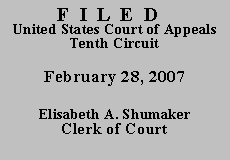

| UNITED STATES OF AMERICA,
Plaintiff-Appellee, v. RIGOBERTO OROZCO, also known as Alejandro Perez, also known as Alejandro Garcia, also known as Antonio Cruz, Defendant-Appellant. |
|
Defendant stated in his plea agreement that:
I knowingly, voluntarily and expressly waive my right to appeal any sentence imposed upon me, and the manner in which the sentence is determined, on any of the grounds set forth in Title 18, United States Code, Section 3742 or on any ground whatever, except I do not waive my right to appeal (1) a sentence above the maximum penalty provided in the statute of conviction . . . and (2) a sentence above the high-end of the guideline range as determined by the district court at sentencing, or, in the event that no such determination is made by the district court, a sentence above the high-end of the guideline range as set forth in the final presentence report.
Plea Agreement at 3-4 (dated April 4, 2006).
The district court imposed a sentence of seven months on Count One and twenty-four months on Count Two, to be served consecutively. This sentence was below the maximum statutory penalty of ten years for Count One and at the statutory mandatory minimum of two years for Count Two. Further, the sentence was within the twenty-eight to thirty-four month advisory guideline range for both convictions.
Under Hahn, we consider "(1) whether the disputed appeal falls within the scope of the waiver of appellate rights; (2) whether the defendant knowingly and voluntarily waived his appellate rights; and (3) whether enforcing the waiver would result in a miscarriage of justice." Id. at 1325. The miscarriage-of-justice prong requires the defendant to show (a) his sentence relied on an impermissible factor such as race; (b) ineffective assistance of counsel in connection with the negotiation of the appeal waiver rendered the waiver invalid; (c) his sentence exceeded the statutory maximum; or (d) his appeal waiver is otherwise unlawful and the error "seriously affect[s] the fairness, integrity or public reputation of judicial proceedings." Id. at 1327 (quotation omitted). The government's motion addresses these considerations, explaining why none undermines defendant's appeal waiver here.
Defendant concedes that he knowingly and voluntarily entered his plea, including the appeal waiver, and that the sentencing issues to be raised on appeal fall within the scope of his waiver. He contends, however, that the waiver is "otherwise unlawful" under Hahn's miscarriage-of-justice prong because the district court did not give any reasons for "rejecting a non-Guidelines" sentence. Defendant's Response at 1. Defendant contends that the sentencing judge could have imposed the sentence "based solely upon his adoption of the Sentencing Guidelines recommendation, without any explicit consideration of the other sentencing factors listed in 18 U.S.C. § 3355." Id. at 2. He contends the district court therefore imposed the Guidelines mandatorily in violation of United States v. Booker, 543 U.S. 220 (2005).
Defendant's argument is without merit; this court rejected a similar argument in United States v. Porter, 405 F.3d 1136, 1144 (10th Cir.), cert. denied, 126 S. Ct. 550 (2005) (upholding appeal waiver as valid where district court treated the Guidelines as mandatory in violation of Booker). The miscarriage-of-justice exception defendant invokes looks to whether "the waiver is otherwise unlawful," Hahn, 359 F.3d at 1327 (quotation omitted and emphasis added), not whether some other aspect of the proceeding may have involved legal error. Defendant's position that his appeal waiver should be excused due to alleged error in the determination of his sentence entails what Hahn noted as "the logical failing[] of focusing on the result of the proceeding, rather than on the right relinquished, in analyzing whether an appeal waiver is [valid]." Id., 359 F.3d at 1326 n.12. "[T]he relevant question . . . is not whether [defendant's] sentence is unlawful . . . , but whether . . . his appeal waiver itself [is] unenforceable." Porter, 405 F.3d at 1144.
Defendant has not asserted any claim that his appeal waiver itself was unlawful, much less shown that enforcement of the waiver would seriously affect the fairness, integrity, or public reputation of the judicial proceedings. In this regard, we note (1) that the plea agreement clearly set out the maximum sentence defendant faced and explained the appellate rights he relinquished in exchange for the benefits offered by the government, and (2) that the sentence imposed by the district court complies with the terms of the agreement and the understanding expressed by the defendant at the plea hearing. See id. at 1145.
The government's motion to enforce the waiver is GRANTED and the appeal is DISMISSED. The mandate shall issue forthwith.
ENTERED FOR THE COURT
PER CURIAM
*. This panel has determined unanimously that oral argument would not materially assist the determination of this appeal. See Fed. R. App. P. 34(a)(2); 10th Cir. R. 34.1(G). The case is therefore ordered submitted without oral argument. This order and judgment is not binding precedent, except under the doctrines of law of the case, res judicata, and collateral estoppel. It may be cited, however, for its persuasive value consistent with Fed. R. App. P. 32.1 and 10th Cir. R. 32.1.